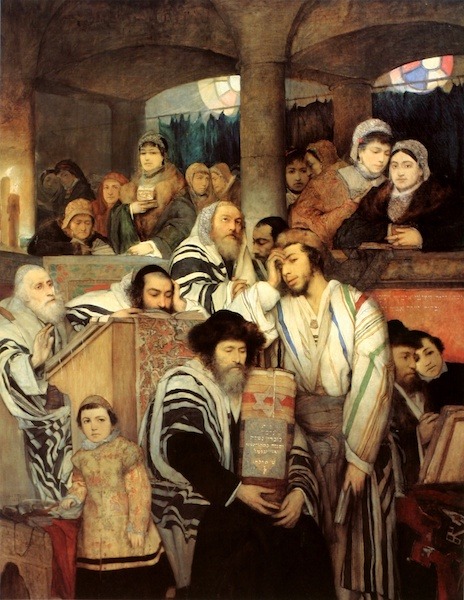Lois Tverberg
(Editors note: This article was written and published in September of 2001, following the tragic events of 9/11.)
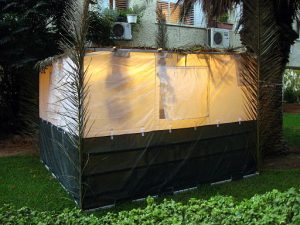 In the past couple weeks, I have been reminded of an image from one of the traditions of Sukkot, the feast of tabernacles, that will be celebrated next week. God tells his people to build booths and live in them for seven days, in order to remember how he brought them out of Egypt and kept them safe in the booths they lived in. This was to remind them of how God took care of them so that their feet did not swell and their clothes did not wear out. To this day, Jewish people have observed the tradition of building a sukkah.
In the past couple weeks, I have been reminded of an image from one of the traditions of Sukkot, the feast of tabernacles, that will be celebrated next week. God tells his people to build booths and live in them for seven days, in order to remember how he brought them out of Egypt and kept them safe in the booths they lived in. This was to remind them of how God took care of them so that their feet did not swell and their clothes did not wear out. To this day, Jewish people have observed the tradition of building a sukkah.
In order for people to get the sense of dependency they had while wandering in the wilderness, they established regulations for the booths. The booths should be made out of impermanent materials, cannot be entirely enclosed on all four sides, and at least one star should be visible through the branches used to cover the roof.
It is also traditional to fill the booth with harvest images — such as fruit and vegetables from the garden, to remind one’s self of the abundance of God’s blessings during that year. They are supposed to live in them, or at least eat their meals in it as if it was their home.
As you sit in one of these rickety little booths and see the sky through the branches and feel the wind blow through the walls, you have a strong sense of your own insecurity and lack of protection from the elements.
That is exactly the point: that our security doesn’t come from the strength of the walls that we build around ourselves, it comes from our protection by the Lord. Ironically, at the same time a person feels insecure, there is also a feeling of being overwhelmed with the abundant blessings of the harvest he has given. It is a potent experience of what following God is like — feeling radical insecurity but blessed at the same time. That is what I’ve felt like lately.
The tragic national events of the last couple weeks have made my house feel like a sukkah. My sturdy brick house suddenly seemed as if I could see the stars through the roof and feel the wind through the walls.
When the Twin Towers fell it seemed like the security of living in the United States fell with it. It seems only a matter of time until more tragedy occurs. On top of that, the economy that is worsening is making life difficult or even desperate for many businesses and people who have lost their jobs.
It is hard in a situation like this not to feel abandoned or unloved by God. Indeed, our spiritual ancestors, the Israelites, cursed God in their booths and accused him of bringing them out of Egypt in order to destroy them. They longed for cucumbers and melons and forgot the slavery altogether.
Questions about God’s character frequently arise — is God really good? Does he really have our best interests in mind? Why does God let adversity plague us? How can we really be sure that God is loving and not dispassionate and cruel?
The Lord spoke to me about this about a year ago when I had been asking these same questions. For several days it rained without stopping and my basement flooded, and kept filling with water for weeks. One day I told a new friend of mine, Mary, who told me to mention it to her husband Bruce, a man I hardly knew. I expected that he would give me the number of a plumber. Instead he said “It looks like you need to have a sump pump put in — I’d like to help you with that.”
It turned out to be the world’s most horrendous project. He and his brother-in-law worked on it for weeks at great time and expense to themselves. Every time I came downstairs I was speechless at Bruce’s generosity and good will. I had never met a person of such character who would sacrifice so much of himself to help another he hardly knew. During this time we started talking about working together, and out of it began the ministry of the En-Gedi Resource Center.
I know Bruce didn’t realize the Lord was speaking to me through his actions. God was saying behind it, “Can’t you see my character, Lois? Bruce is a good man, willing to sacrifice a lot to help another he hardly knows. Kal v’homer — How much more did I sacrifice for you when I suffered for you?”
What hit me is that the truest test of a person’s selfless goodwill and love for another is what he is willing to sacrifice of himself for the other. Because of that, the suffering of Christ has once and for all exonerated God from accusation of being evil. God could make us happy and wealthy, but it wouldn’t say nearly much about his love and good intentions toward us as when he himself suffered for us.
I think of Romans 5:8, which says “But God demonstrates his own love toward us, in that while we were yet sinners, Christ died for us.” Along with that, when he “tabernacled” among us, he felt the same insecurity that we feel.
Another thing I realized is that if Jesus and his Father are one, the sacrificial love of Jesus must be an exact reflection of the love of his Father in heaven. I’m not sure all Christians are convinced of this, because of their suspicion of God as he has revealed himself in our Old Testament. I hear things like “I think the story of the sacrifice of Isaac shows that God is a child abuser!”
If we are convinced that Jesus and his Father are one, how can we level that charge? Would we call Jesus a child abuser? Jesus himself says in John 5:19 “Truly, truly, I say to you, the Son can do nothing of himself, unless it is something he sees the Father doing; for whatever the Father does, these things the Son also does in like manner.” Seeing God through the lens of Jesus must make us know that every possible charge of evil against him must be false even in the most difficult stories. We need to re-read difficult scriptures in the light of Christ.
With this thought, I see an irony in another Jewish tradition that comes at this time of year, called Simchat (“sim-KHAHT”) Torah, meaning “Rejoicing with the Torah.” Right after the feast of Sukkot is over, the the Torah scrolls are rewound back to the beginning and the next year’s reading cycle begins at Genesis 1:1 again.
This is an occasion of much rejoicing, and the object of their joy is the fact that God gave them his word, the Torah. They literally dance around the synagogue with the Torah scrolls praising God for the Scriptures. Why is it that they are so radically convinced of God’s goodness even in the passages that Christians find most difficult?
I think this is partly because they have understood the biblical culture better than Western Christians who find them so foreign. As I’ve studied the Torah, I’ve found the loving kindness of God in the books I have avoided, and this has deepened my understanding of the faithfulness of my Father in heaven.
Both the lesson of the Sukkah, God’s protection in the desert, and Simchat Torah, rejoicing in his Word, help answer the insecurity I feel at this time of worry and adversity.
I’m convinced, beyond a shadow of a doubt, of the goodness of God, even when it is hidden in difficult times or terrible events or even hard texts. His protection in the desert, his giving of his Word, and his very own sacrifice for us finally answer that question once and for all.
~~~~
Photos: RonAlmog [CC BY 2.0], Gady Munz Pikiwiki Israel [CC BY 2.5]

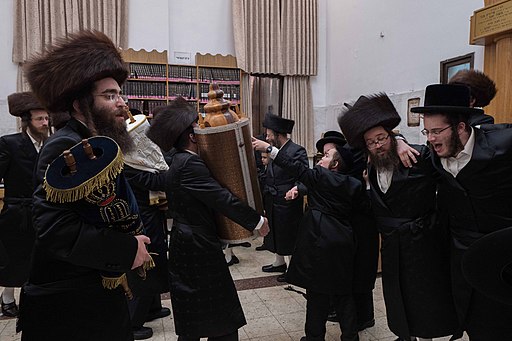
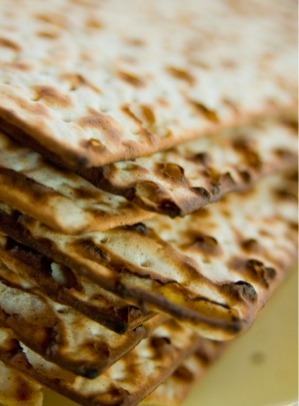
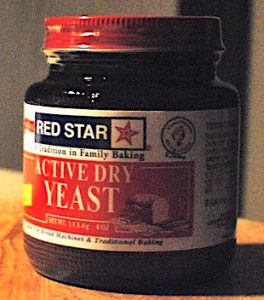
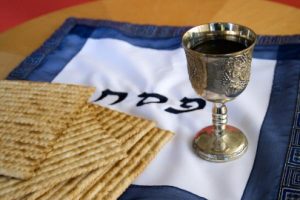
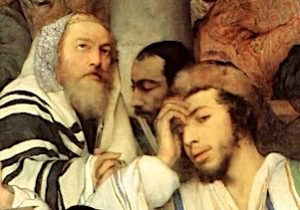 Yom Kippur, the Day of Atonement, is the holiest and most important day of the year for Jews. It begins before sunset the night fore, and includes a 25 hour fast from both food and water, and ceasing of all work. It is a day set aside to “afflict the soul,” to ask for atonement for the sins of the past year. Even Jews who otherwise are not observant will observe this day.
Yom Kippur, the Day of Atonement, is the holiest and most important day of the year for Jews. It begins before sunset the night fore, and includes a 25 hour fast from both food and water, and ceasing of all work. It is a day set aside to “afflict the soul,” to ask for atonement for the sins of the past year. Even Jews who otherwise are not observant will observe this day.
